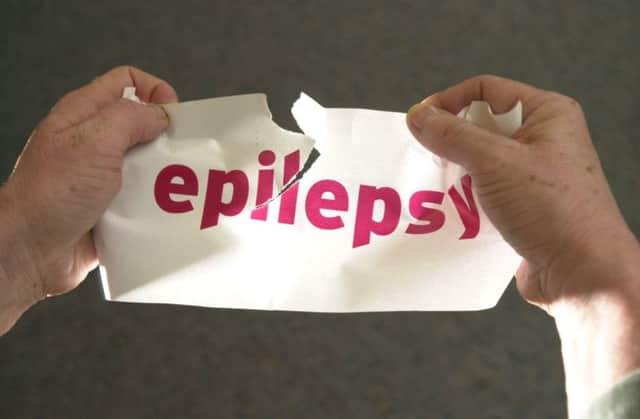We all need to know more about epilepsy


If you were to open any national newspaper this morning, there would be a good number of features and stories about health and medicine. However, when reading about all the different illnesses, epidemics and breakthroughs, one fairly common condition is regularly absent from the nation’s media – epilepsy.
More than 50,000 people in Scotland have epilepsy yet it remains one of the least recognised and publicised conditions in the country. To compare numbers, approximately 400 people are living with Motor Neurone Disease (MND) in Scotland while more than 10,000 suffer from Multiple Sclerosis (MS). Both illnesses are incredibly serious and debilitating but, considering the numbers involved, the lack of awareness of epilepsy, compared with MND and MS, is striking.
Advertisement
Hide AdAdvertisement
Hide AdEpilepsy is the most common serious neurological condition but has not shaken off a stigma that has existed for centuries, affecting people from all strands of society, including royalty. King George VI’s brother, Prince John, is alleged to have had epilepsy and was removed from view for the rest of his young life, never to be seen in public again. The urge to hide epilepsy has never really diminished which, whether it is due to fear of social exclusion or prejudice, is unacceptable today.
Epilepsy is a complex and diverse condition but a significant number of those with the condition (about 60 per cent) have it under control using appropriate treatment and medication. However, one of the common misconceptions is that everyone with epilepsy will have regular seizures. This is not always the case and with the right medication, seizures are relatively rare occurrences for most people.
Nevertheless, this lack of wider understanding inevitably leads to many people keeping quiet which can cause tremendous mental and physical strain. Can you imagine, as a young person, not being invited on nights out because your friends fear you may start flopping around if the disco lights flash too much? Apart from the fact that photosensitive seizures are quite rare it illustrates how people with epilepsy can be marginalised by misguided good intentions!
There are, however, risks in not making family, friends and colleagues aware of your condition. Approximately 100 people in Scotland, mostly young people, die each year as a result of Sudden Unexpected Death in Epilepsy (SUDEP). Although rare, SUDEP is devastating and highlights the need for openness from the medical profession as many deaths might be avoided.
The desire to keep quiet about epilepsy is understandable, but increasing awareness and understanding of the condition is imperative to avoid such feelings. Schools are playing their part, but pupils only tend to be educated on the subject if a class peer has the condition – more can be done at that level. It was encouraging to see the recent launch of an awareness campaign to help educate police and law officers and similar campaigns for the general public are essential.
Although it is more common, epilepsy does not have the profile of other neurological conditions such as MND, MS or Parkinson’s disease. There are no well-known celebrities with epilepsy who are willing to attract media attention, there is a lack of education in schools and a need for awareness training in many areas of society if this blight of stigma is to be eradicated. Epilepsy has been recognised for thousands of years, Julius Caesar had the “falling sickness”, but we cannot continue to allow attitudes to prevail which are positively medieval. People with epilepsy must be encouraged to not let it define them but to be open about their condition and live life as normally as possible. The rest of us have a responsibility to create an environment in which they have the confidence to do so.
• Hilary Mounfield OBE, is an ambassador for the International League Against Epilepsy (ILAE) and the William Quarrier Scottish Epilepsy Centre.
The William Quarrier Scottish Epilepsy Centre is the only residential assessment and treatment centre in Scotland for adults with epilepsy. Supporting the country’s reputation as a global leader in epilepsy treatment and care, the centre provides one of Europe’s leading epilepsy services offering top of the range EEG (electroencephalography) clinical assessment and observation. www.scottishepilepsycentre.org.uk